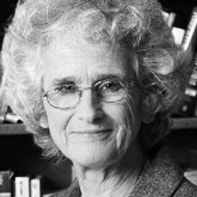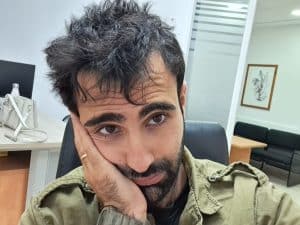By: Ruth Gavison
My starting point is interest in the welfare of Jews as individuals and interest in the future of the Jewish people as the carrier of the unique Jewish culture. There is no significance and no hope in maintaining Jews as individuals if they do not belong to the group of Jews. Belonging is designed to give someone significance and a historic tie between his past and his future and the future of others to whom he is culturally connected. Today, Jews can choose between Jewish life in the Diaspora and Jewish life in a Jewishmajority state in the Land of Israel. The Jewish people found unusual cultural preservation even in the long years in the Diaspora without a homeland, because “Jewish” was primarily defined by keeping commandments that required isolation and a unique way of life. Today, a large portion of the Jewish people does not keep commandments. A precondition for the prosperity of the Jewish people is that a large part of its members will want to preserve its Jewish identity, develop it, and pass it on.
The greatest challenge for Judaism and for Jews at this time is maintaining cohesion despite the fact that Jews – in Israel and abroad – have a broad range of approaches to Jewish religion and tradition, to their role in Jewish identity and to the significance of Judaism now. This is also true of Zionism, the role of the State of Israel in Jewish identities of our time, and Israel’s policy on various issues such as the future of the territories or the roles of church and state in Israel. Cooperation and cohesion among Jews – despite this range of opinions, and despite the disputes that this range engenders – are necessary in order for Jews to act together to preserve their Jewishness, and to strengthen the state in which they, as Jews, have selfdetermination and in which they can continue to battle for its priorities.
In the Diaspora, the partnership is aided by the fact that the countries in which the Jews live are not engaged in determining Jewish identity. Disagreements within the Jewish people exist and will continue to exist, as they have since time immemorial. The Jewish people includes a multitude of communities and the decision how important a person’s Jewishness is to him, what its significance is for him, and what he will do to preserve that Jewishness and pass it on to his children, is both a personal and communal question.
Israel is different in that there are contexts in which a person’s identity as a Jew determines legal consequences and the state has the responsibility to establish relevant matters such as personal status, immigration and citizenship. Israel is also different in that it is the only place in the world with a Jewish majority and Jewish public space, evident in part in the language and holidays; in this unique place, the nature is also a factor in its international relations and impacts the welfare of Jews in Israel and abroad.
The uniqueness of Jewish life in the state has two contradictory influences on the Jewish identities of the individual and the conditions for managing Jewish identities: On the one hand, this contributes to the management of a “natural” Jewish identity even for those who do not keep commandments, as they are growing up in a Jewish and Hebrew public culture, and live in a reality substantially impacted by Jewishness. On the other hand, a Jew abroad who wants to maintain and hand down his identity, must take an active role in preserving Jewish characteristics to reduce the fear of assimilation. In Israel, the Jewish identity of those who do not keep the commandments could be shallow, as there is no consciousness of the need to develop the Jewish identity and hand it down to subsequent generations in order to preserve it.
The challenge of handling Jewish identities in Israel is therefore twofold. First, the partnership among Jews demands that the state not grant a monopoly to any single concept of Jewishness in legal and official arrangements. Rabbinical courts will use the halakhic determinations of Jewish law, marriage and divorce in Israel, however, do not have to be a religious or Orthodox monopoly. The right of return and its conditions must be determined according to the aims of the Law of Return, and not according to halakhic determinations. This was proposed in the GavisonMedan Covenant, drafted in 2004 to facilitate coexistence between religious and secular Jews in Israel. Secondly, and I believe no less importantly, the perception that Israeliness can be emphasized at the expense of Jewishness in Israel must be rejected out of hand. Israeliness is civic and includes Israel’s non-Jewish citizens. The state must act for the welfare of all its residents, protecting their rights is a cornerstone of democracy. Strengthening intra-Israeli cooperation is an important civic and social goal.
However, the reason for the establishment of the state and what enables its prosperity is the implementation of cultural and civic self-determination for Jews in their own land. The (important) creation of cultural Israeliness is not sufficient and cannot provide historical, cultural and national depth that can support substantial identity and belonging. Most of the non-Jews living in Israel are proud of their separate identity and seek to maintain it. I am therefore not willing to give up Jewishness or Zionism for the right wing or the religious. These are the essence of my desire to be part of the project of the State of Israel and the prosperity of the Jewish people. My special challenge is not just to ensure the existence of the state, but also to ensure that it will include an effective legacy of Jewish identities – including those that do not require keeping commandments – as a precondition for interest in Jewish history or Jewish sources. Only such a legacy will enable the continued willingness of most of the public that lives in the state to continue to support a state that is both Jewish and democratic, and contributes to the chance for a rich, vibrant and varied Jewish life outside the state.
Ruth Gavison is a professor of law at Hebrew University of Jerusalem and the founder and president of Metzilah, the Center for Zionist, Jewish, Liberal and Humanist Thought. Gavison is an Israel Prize laureate .









